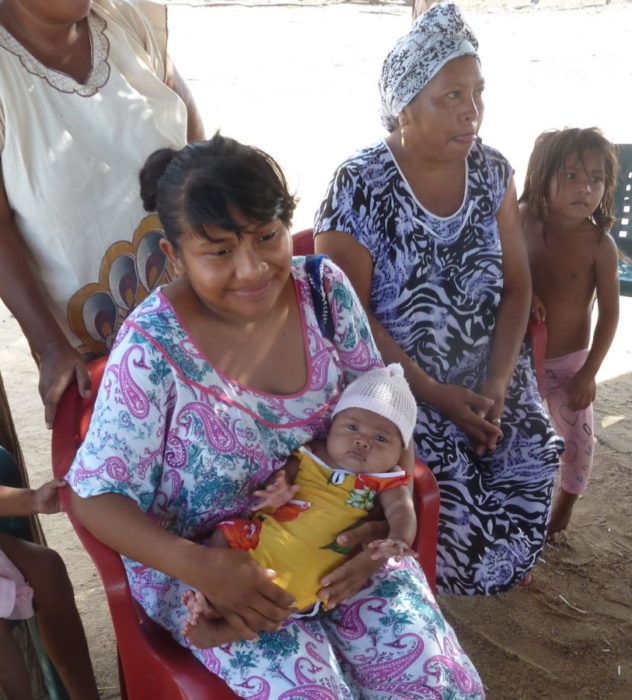Americas
Colombia
South America
Nursing babies to better health
Flora Maria is a 16 year old mother in Rancheria Sabanita, a small community in northern Colombia, who participated in our nutritional counseling program during her pregnancy. During her nine months, she learned the importance of eating well not only for herself, but for the baby growing inside of her. Flora increased her diet to include fortified rice, which provided her with the necessary vitamins and minerals she needed to maintain a balanced diet.
Fortified rice enhances the nutritional quality of a meal by delivering essential nutrients missing in many people's meals. In La Guajira, Colombia, the number of malnourished children is alarming. Through our nutrition program, we help ensure the poorest get the nutrition they need for an active and healthy life. Regular milled rice is low in micronutrients and serves primarily as a source of carbohydrates.
In addition to receiving supplemental nutrition, Flora also learned about the benefits of breastfeeding for at least six months after birth. According to the World Health Organization, infants should be breast fed exclusively for the first six months of their lives. In the early stages of a baby’s life, breast milk meets all nutrient needs and it contains the perfect mix of fat, protein and carbohydrate for developing babies, and also protective substances that give her immunity to diseases.
Because of the addition of fortified rice to her daily diet during pregnancy, she was stronger and healthier to provide nutritional milk for her baby for the most critical first months of life for her child.
“I am a young mother, so before the counseling I received, I didn’t know how long I had to nurse and sometimes it is difficult. Because of the nutritional education, I learned that breastfeeding for six months is good for nurse baby. And,with the fortified rice, I was able to stay healthy, eat well, and provide enough nutritious milk for my baby.”
Our health campaigns reach far into the community and help those who need it most because they are run by trusted locals who know the needs of the community. With them, we can create an sustainable community-based initiative that includes local partners trained by us to be advocates of better health in their community, which then benefit children and families in the region long after our time in the region has ended.
